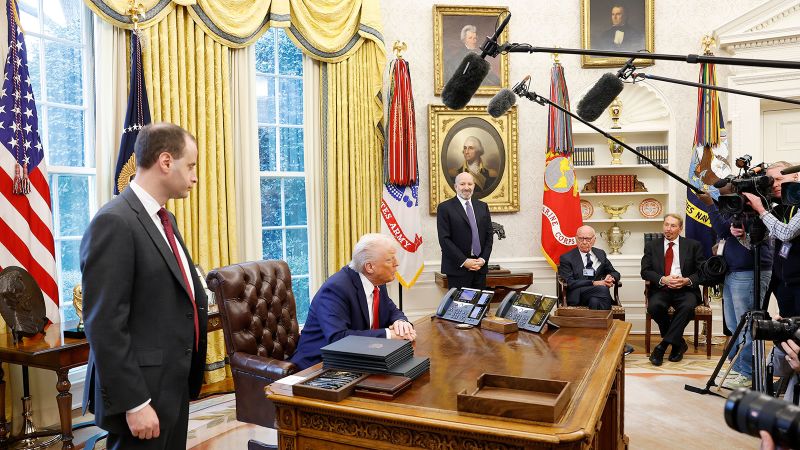
Fact check: Trump falsely claims Canada prohibits US banks
CNN
On Monday, President Donald Trump put a month-long pause on his planned tariffs on Canadian imports. Earlier in the day, though, he added two new items to his long list of inaccurate complaints about Canada.
On Monday, President Donald Trump put a month-long pause on his planned tariffs on Canadian imports. Earlier in the day, though, he added two new items to his long list of inaccurate complaints about Canada. In a post on social media and then in comments to reporters in the Oval Office, Trump claimed that Canada prohibits US banks from opening or doing business there. In fact, various well-known US banks are open for business in Canada. And in those same Oval Office remarks, Trump claimed that Canada “for the most part” doesn’t accept US agricultural products. In fact, Canada is one of the world’s biggest buyers of US agricultural products — the No. 1 buyer for some of them. Here is a fact check. Trump wrote on social media on Monday morning: “Canada doesn’t even allow U.S. Banks to open or do business there. What’s that all about?” In the Oval Office later in the day, Trump said he had raised this complaint with Prime Minister Justin Trudeau. Trump said: “Canada is very tough. Canada is very — you know, we’re not treated well by Canada, and we have to be treated well. Banks are not, as an example, allowed — did you know that, that banks, American banks, are not allowed to do business in Canada. Can you believe that?” Trump’s claim is false, as four experts on banking regulation in Canada told CNN on Monday.













